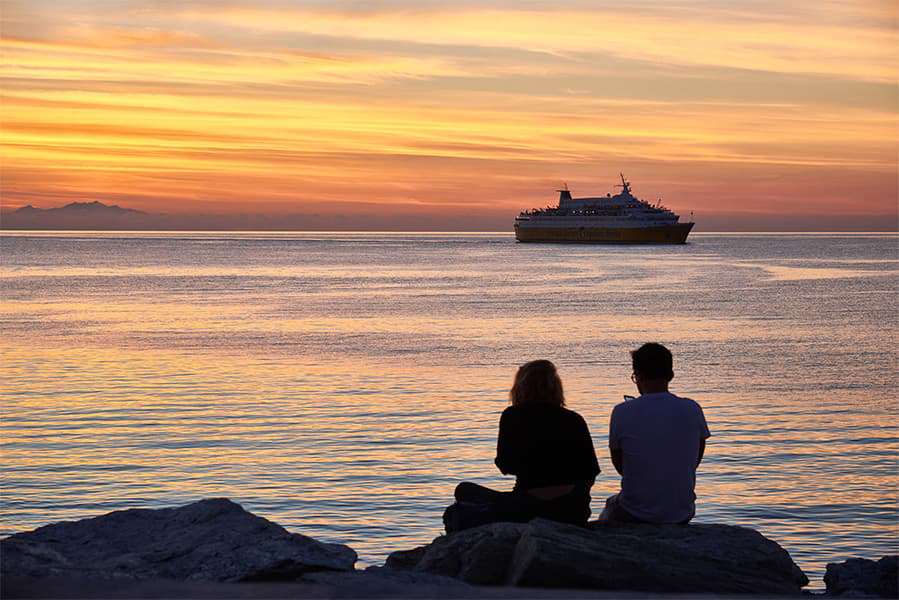Thessaloniki – Heraklion
Ferries to Crete
Thessaloniki – Heraklion
Ferries to Crete

The Thessaloniki Heraklion ferry route is currently not sailing. Thessaloniki Heraklion sailing durations and frequency may vary from season to season. View our Deal Finder for alternative routes and compare prices, times and schedules.
More routes than anyone else.

Compare fares, times & routes in one place.
Change plans easily with flexi tickets.

Book e-tickets & manage trips in-app.
Live ship tracking & real-time updates.

Top-rated customer support when you need it.
The second largest city in Greece is Thessaloniki which is also the capital of the Macedonian region of the country. The city lies on the northern edge of the Thermaic Gulf and is bounded by Mount Chortiatis to the south east and the Gulf to its east. The city was founded by Cassander of Mecedon in 315 BC and went on to become an important city during Roman times when it became the second largest and richest city in the Byzantine Empire. The city was declared a UNESCO World Heritage Site in recognition of the many Byzantine monuments in the city which includes the Paleochristian and Byzantine monuments of Thessaloniki. Also in the city are a number of Roman, Ottoman and Sephardic Jewish monuments. Thessaloniki is regarded as the cultural capital of Greece and has many theatres and arts venues. The city's main theatres, run by the National Theatre of Northern Greece which was established in 1961, include the Theatre of the Society of Macedonian Studies, where the National Theatre is based, the Royal Theatre (Vasiliko Theatro), Moni Lazariston, and the Earth Theatre and Forest Theatre, both amphitheatrical open-air theatres overlooking the city.
Ferry services from the city's port depart to Varthi via Lemnos, Mitilini and Chios and then on to Kavala. Passenger facilities in the port include waiting rooms, cafes, information desks and public telephones.
Located on the Greek island of Crete, Heraklion is the island's largest city and is one of the main urban centres in Greece. The city can trace its history back to at least the 9th century AD when its development began and then later came under the influence of the Arabs, the Venetians and the Ottomans. Popular sites in the city with tourists include the fortification walls that are essentially the boundary of the old city. These were first built by the Arabs and then reinforced by the Venetians. From the seven bastions, only the Martinengo bastion survives to this day and is where visitors will find the tomb of the renowned writer N. Kazantzakis, overlooking the city. The city was also a venue during the 2004 Olympic Games, and hosted games of the football tournament.
Located in the city's old port, visitors can still see the vaulted tarsanades where ships used to be built and also the 16th century Koule Fortress. From the port, ferries depart to destinations including Santorini, Ios, Paros, Mykonos and Rhodes. There are also ferry services to the Greek mainland port of Piraeus.